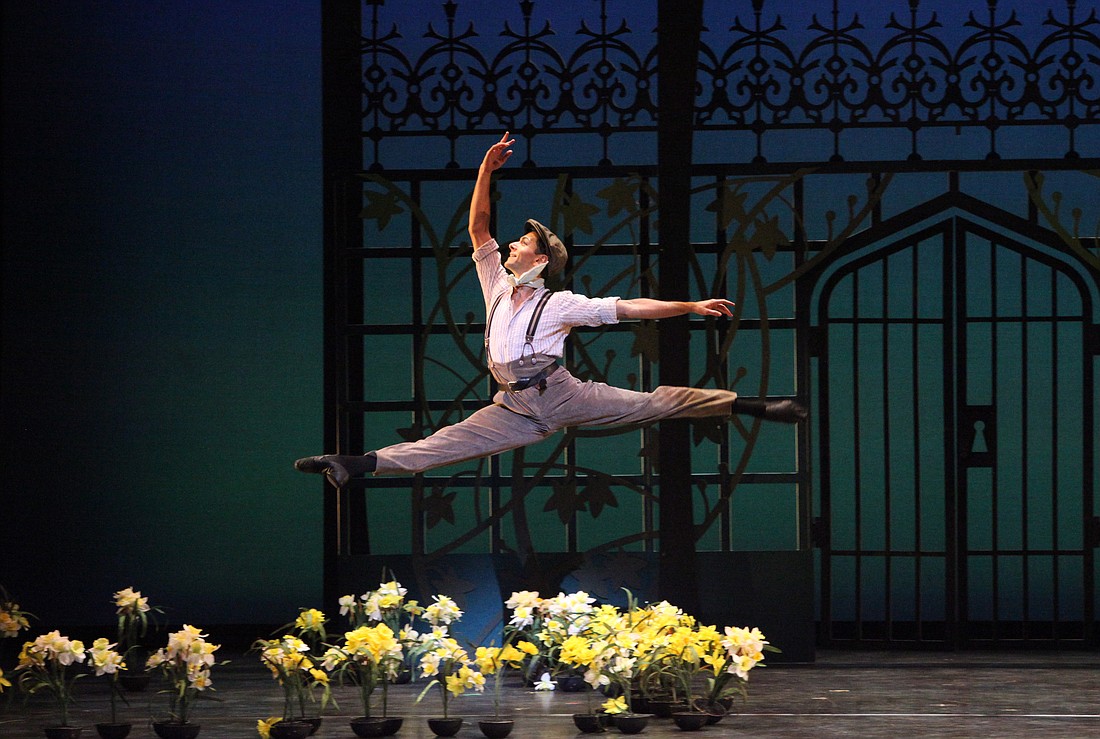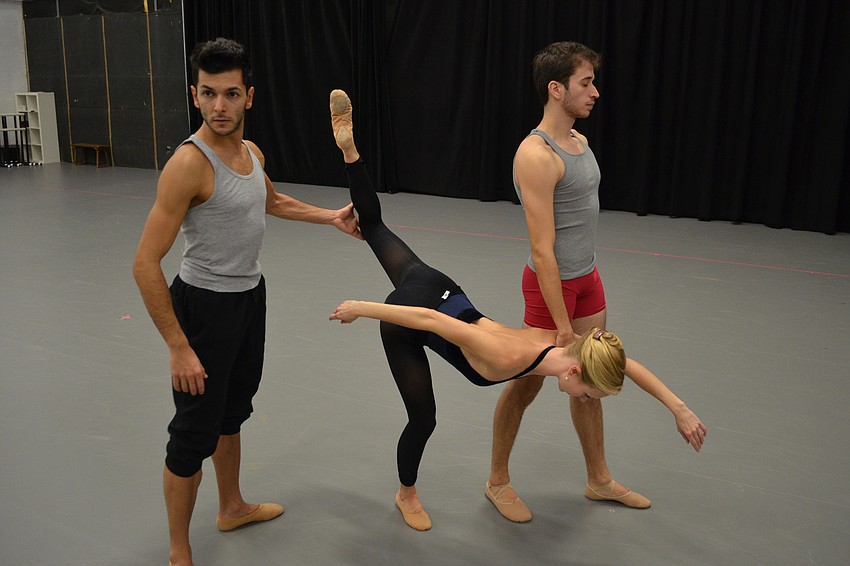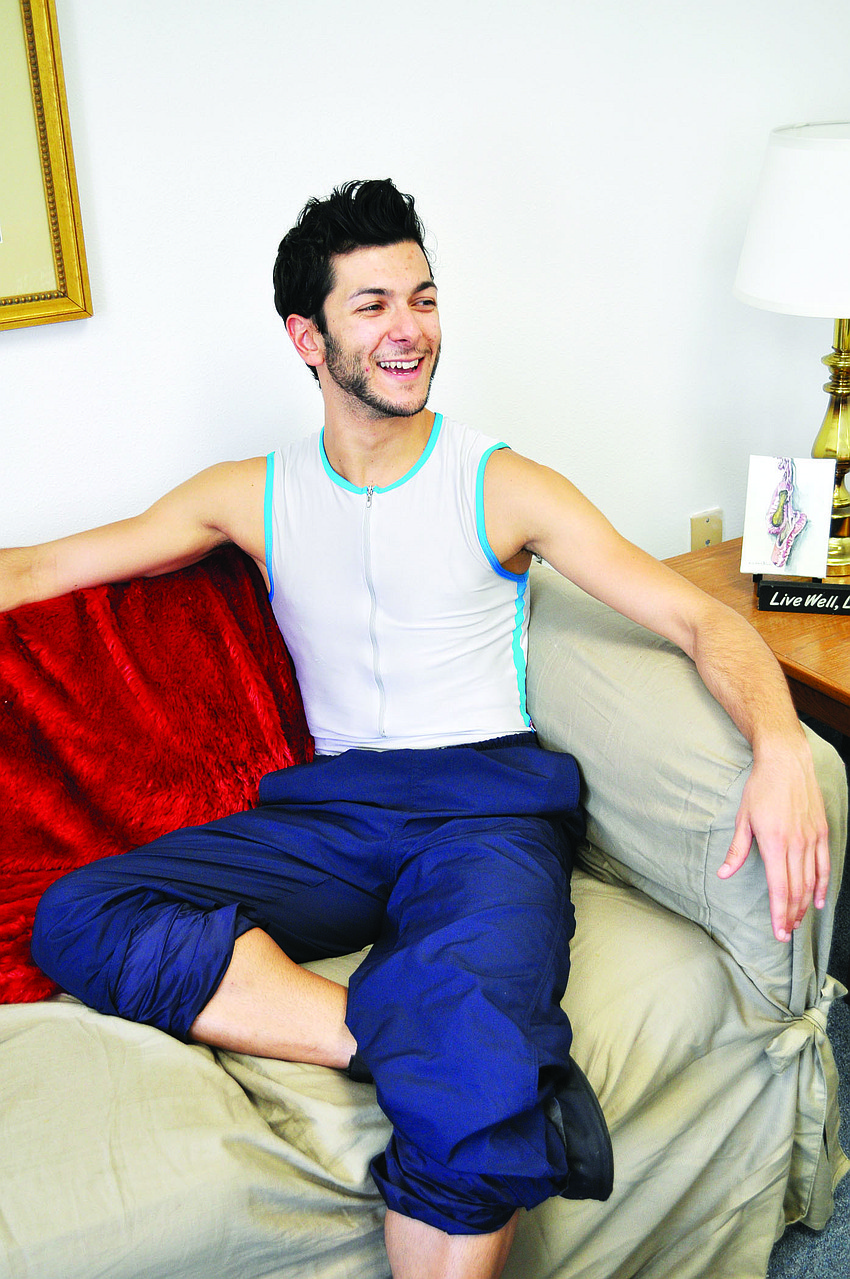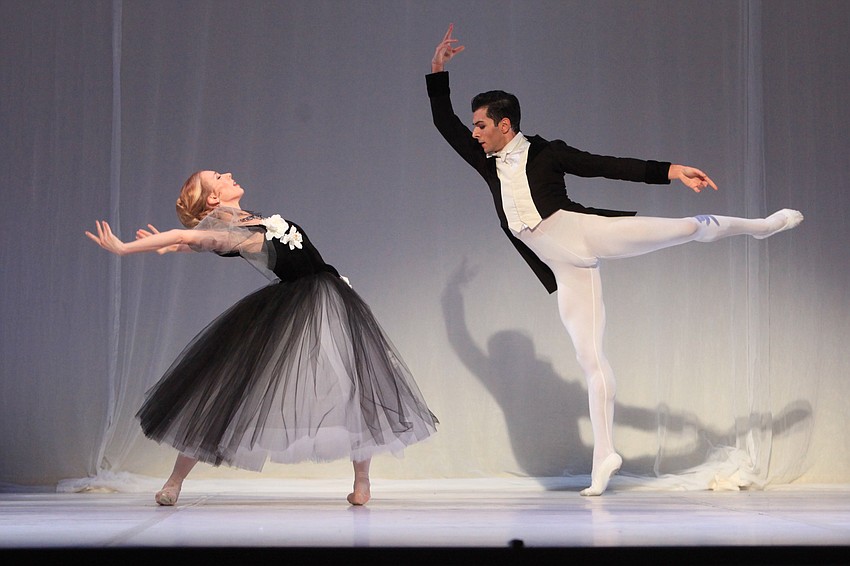- July 26, 2024
-
-
Loading

Loading

Some people used the pandemic to brush up on their cooking skills or work on DIY projects around the house. Ricardo Graziano choreographed his way through COVID.
One of his pandemic-era creations, “Schubert Variations,” will make its world premiere on Jan. 26-29 when the Sarasota Ballet celebrates Graziano’s 10th anniversary as resident choreographer.
“Having created part of the ballet during COVID time, ‘Schubert Variations’ started by being an ode to a dancer’s career and passion for movement and the will to get back on stage,” Graziano says. “Three years later, the ballet is still about movement and being able to show off each dancer’s talents while pushing them beyond their limits and encouraging them to move bigger and faster.”
In a Zoom interview between rehearsals, Graziano revealed that “Schubert Variations” is an abstract ballet that “gives dancers a chance to show off their techniques.” There are 11 dancers on stage during the one-act ballet — a principal couple, a female soloist and four corps de ballet couples.
The set and costumes are minimalist, with the dancers wearing brightly colored leotards.
“Schubert Variations” is one of three Graziano ballets in the Sarasota Ballet’s fourth program of its 2023-24 season, aptly titled “Graziano Celebrated.” The other two are “Sonatina,” one of Graziano’s most classical works, and “In a State of Weightlessness,” his most critically acclaimed ballet.
Set to the music of Antonín Dvorak, “Sonatina” was choreographed for the Sarasota Ballet’s return to live performances following its 2020-21 digital season.

A crowd pleaser, “Weightlessness” premiered during the ballet’s one-week residency in 2015 at Jacob’s Pillow Dance Festival in the Massachusetts Berkshires. Set to the contemporary classical music of Philip Glass, it features five couples who enter and exit the stage. The dancers perform a sequence of fluid pas de deux that leaves audiences mesmerized.
This is not the first Graziano retrospective the Sarasota Ballet has staged — there was one in 2019 — but this one marks the end of Graziano’s decade-long role as resident choreographer, a period during which he created 11 major ballets.
The end of the residency, which typically lasts between three and five years, will give Graziano the opportunity to create ballets for other companies.
Asked who and what has influenced him as a choreographer, Graziano replied, “In general, what I bring is the experiences that I’ve had in life, all the people that I’ve worked with, all the ballets I’ve performed.”
While wearing his choreographer hat, Graziano has had the chance to create a ballet with Spanish flair — “En Las Calles de Murcia,” first performed in March 2015 — but he has not yet created a ballet to showcase his Brazilian roots.

A native of Brazil whose grandparents were Italian, Graziano is both a principal dancer and resident choreographer with Sarasota Ballet. He came to Sarasota in 2011 from Oklahoma, where he spent five years with the Tulsa Ballet.
Graziano’s original plan was to dance in Europe, unlike many of his peers in Brazil, who had their sights set on the U.S. He got his job at the Tulsa Ballet during an audition in Prague, where he thought he was auditioning for a dance company in the Czech Republic. He quickly fell in love with the U.S. and has since become an American citizen.
In a 2018 interview, Graziano told the Observer he’s felt like an American for a long time.
“Americans don’t feel like I’m an American, but Brazilians also don’t feel like I’m a Brazilian,” he said. “This is home for me; this has been home for me. When I visit (Brazil), I am a foreigner. I’m a fish out of water. I really feel like I don’t belong there anymore.”
When he was growing up in a small village outside São Paulo, Graziano toyed with the idea of being an actor. He started following his sister to dance classes at the age of 8. But his first love was jazz, not ballet. Graziano took up ballet at age 11 after the local dance school began offering free ballet classes to boys so the girls would have more partners.
He attended Brazil’s Marcela Campos Escola de Bailados until he was 16 and then moved to Germany to complete his training at the Academy of Dance in Mannheim, where he spent two years.
Graziano has had a storied career as a dancer in Sarasota, performing roles such as Christopher Wheeldon’s “The American,” George Balanchine’s “Divertimento No. 15” and “The Prodigal Son,” and Frederick Ashton’s “Les Rendezvous.”
Graziano says if he had to choose his favorite roles, it would be Armand in Ashton’s “Marguerite and Armand,” which required a lot of acting, and Colas in Ashton’s “La Fille Mal Gardée,” a special occasion because it was his first full-length ballet with the company as principal dancer.

In 2011, Graziano choreographed his first ballet for the Sarasota Ballet, “Shostakovich Suite.” The eight-scene, nonnarrative ballet set to the music of the Russian composer and pianist Dimitri Shostakovich is a nod to the work of legendary choreographer George Balanchine.
Sarasota Ballet Director Iain Webb offered him the position as resident choreographer three years later.
During the past decade, Graziano has juggled his roles as principal dancer and resident choreographer. Right now, he is on a hiatus from dancing on stage as he recuperates from surgery on his Achilles tendon, but hopes to be able to perform in April.
At 37, Graziano is conscious of the limitations age imposes on a career involving the body, but he says he plans to continue dancing as long as he can.
“A lot of dancers transition into choreography full time,” notes Graziano. “I still enjoy dancing. As long as I can do both, I will. I want to keep pushing myself and keep pushing boundaries.”